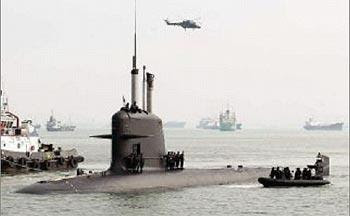10 reasons why Russia still matters
House Speaker John Boehner recently delivered a fiery indictment of Russia and the Obama administration’s entire “reset” in Russian policy.
From the vantage point of two longtime Russia watchers — one a Republican who served in the George W. Bush administration and the other a Democrat who served in the Pentagon under President Bill Clinton — Boehner misses the point.
That central point is that Russia matters a great deal to a U.S. government seeking to defend and advance its national interests. Prime Minister Vladimir Putin’s decision to return next year as president makes it all the more critical for Washington to manage its relationship with Russia through coherent, realistic policies.
No one denies that Russia is a dangerous, difficult, often disappointing state to do business with. We should not overlook its many human rights and legal failures. Nonetheless, Russia is a player whose choices affect our vital interests in nuclear security and energy. It is key to supplying 100,000 U.S. troops fighting in Afghanistan and preventing Iran from acquiring nuclear weapons.
Ten realities require U.S. policymakers to advance our nation’s interests by engaging and working with Moscow.
First, Russia remains the only nation that can erase the United States from the map in 30 minutes. As every president since John F. Kennedy has recognized, Russia’s cooperation is critical to averting nuclear war.
Second, Russia is our most consequential partner in preventing nuclear terrorism. Through a combination of more than $11 billion in U.S. aid, provided through the Nunn-Lugar Cooperative Threat Reduction program, and impressive Russian professionalism, two decades after the collapse of the “evil empire,” not one nuclear weapon has been found loose.
Third, Russia plays an essential role in preventing the proliferation of nuclear weapons and missile-delivery systems. As Washington seeks to stop Iran’s drive toward nuclear weapons, Russian choices to sell or withhold sensitive technologies are the difference between failure and the possibility of success.
Fourth, Russian support in sharing intelligence and cooperating in operations remains essential to the U.S. war to destroy Al Qaeda and combat other transnational terrorist groups.
Fifth, Russia provides a vital supply line to 100,000 U.S. troops fighting in Afghanistan. As U.S. relations with Pakistan have deteriorated, the Russian lifeline has grown ever more important and now accounts for half all daily deliveries.
Sixth, Russia is the world’s largest oil producer and second largest gas producer. Over the past decade, Russia has added more oil and gas exports to world energy markets than any other nation. Most major energy transport routes from Eurasia start in Russia or cross its nine time zones. As citizens of a country that imports two of every three of the 20 million barrels of oil that fuel U.S. cars daily, Americans feel Russia’s impact at our gas pumps.
Seventh, Moscow is an important player in today’s international system. It is no accident that Russia is one of the five veto-wielding, permanent members of the U.N. Security Council, as well as a member of the G-8 and G-20. A Moscow more closely aligned with U.S. goals would be significant in the balance of power to shape an environment in which China can emerge as a global power without overturning the existing order.Eighth, Russia is the largest country on Earth by land area, abutting China on the East, Poland in the West and the United States across the Arctic. This territory provides transit corridors for supplies to global markets whose stability is vital to the U.S. economy.
Ninth, Russia’s brainpower is reflected in the fact that it has won more Nobel Prizes for science than all of Asia, places first in most math competitions and dominates the world chess masters list. The only way U.S. astronauts can now travel to and from the International Space Station is to hitch a ride on Russian rockets. The co-founder of the most advanced digital company in the world, Google, is Russian-born Sergei Brin.
Tenth, Russia’s potential as a spoiler is difficult to exaggerate. Consider what a Russian president intent on frustrating U.S. international objectives could do — from stopping the supply flow to Afghanistan to selling S-300 air defense missiles to Tehran to joining China in preventing U.N. Security Council resolutions.So next time you hear a policymaker dismissing Russia with rhetoric about “who cares?” ask them to identify nations that matter more to U.S. success, or failure, in advancing our national interests.
Graham Allison is director of the Belfer Center for Science and International Affairs at Harvard’s Kennedy School and a former assistant secretary of defense in the Clinton administration. Robert D. Blackwill is Henry A. Kissinger senior fellow for U.S. foreign policy at the Council on Foreign Relations and served as U.S. ambassador to India and as deputy national security adviser for strategic planning in the Bush administration. They are co-chairmen of the Task Force on Russia and U.S. National Interests, co-sponsored by the Belfer Center and the Center for the National Interest. The group’s new report, “Russia and U.S. National Interests: Why Should Americans Care?” is due out Oct. 31.


Comments